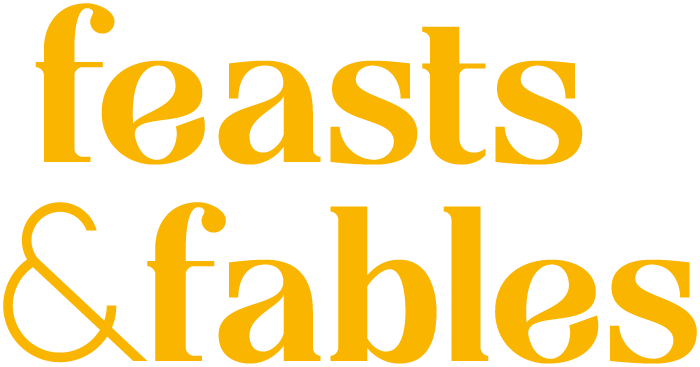‘First, Catch’ by Thom Eagle
In our household, we often play games of ‘how many cookbooks is enough‘?
Clearly, in Mrs Feasts’ eyes, there is no such thing as too many … and ‘this old thing‘ is more likely to relate to a recipe book that has recently snuck onto the shelves than it is to a skirt freshly hung in the wardrobe.
Recipe books were a huge help as we evolved the food service at our delicatessen and, latterly, when we added in a ‘fine dining’ supper club option.
But while they studiously list ingredients and methods and temperatures, the end result in the cookbooks which make our shelves groan is the dish itself … each list and method and serving suggestion leads to the production of a course, or a component of a meal. They provide the ingredients, if you will, of the main event. And yet, they don’t ever seem to lead to the meal, the very reason behind all that preparation.
‘First, Catch‘, a delicious book by chef Thom Eagle, is the antithesis of functional and practical guides to preparing dishes.
That is not to say that in reading it you miss out on a chef’s art.
Quite the opposite.
What unfurls in the pages of his exquisite celebration of a Spring meal is a lyrical and loving journey into a chef’s mind as he weighs up potential ingredients, their history and the ways which they work together, the evolution of methods and why they work, the very essence of the meal itself. This book is not about lists and temperatures and volumes; this book is about ingredients, tastes and combinations.
In a chapter ‘On Boiling and Pickling with Water‘, we learn, for example, that the French have seventeen words to describe the various stages of water boiling. Thom Eagle guides the reader gently through the cooking that is thus enabled by the characteristics of the water bubbling its way through these various stages.
The language is vivid, but gentle. The reader is simmered, not boiled.
This beautiful book elevates food writing way beyond the functional; it is an imaginary journey towards a lunch (towards the end of the book it is pronounced to be a lunch with 5 friends to taste the very best of the new Spring tastes) … it is an evocation of simplicity and seasonality, lightly sprinkled with provenance and history. It is a rare insight to the mind of a man who has skills and talents but who also – clearly – has an interest in food and experience and knowledge aplenty in its ways and mores.
This is a beguiling narrative that makes the reader want to cook more (and better); it is also an encouragement to gather folk around a table to celebrate great tastes, of course, but the companionship too.
This is not a recipe book … this does not count in the next game of ‘how many cookbooks is enough‘. No, this is worth a dedicated space on your shelf of ‘must reads‘, the section of your collection marked ‘read often‘. Like a fine meal, this is a book to savour, brimful of words to roll around the mind and the mouth. This book is an inspiration to learn more, to gather friends, to source great tastes.


